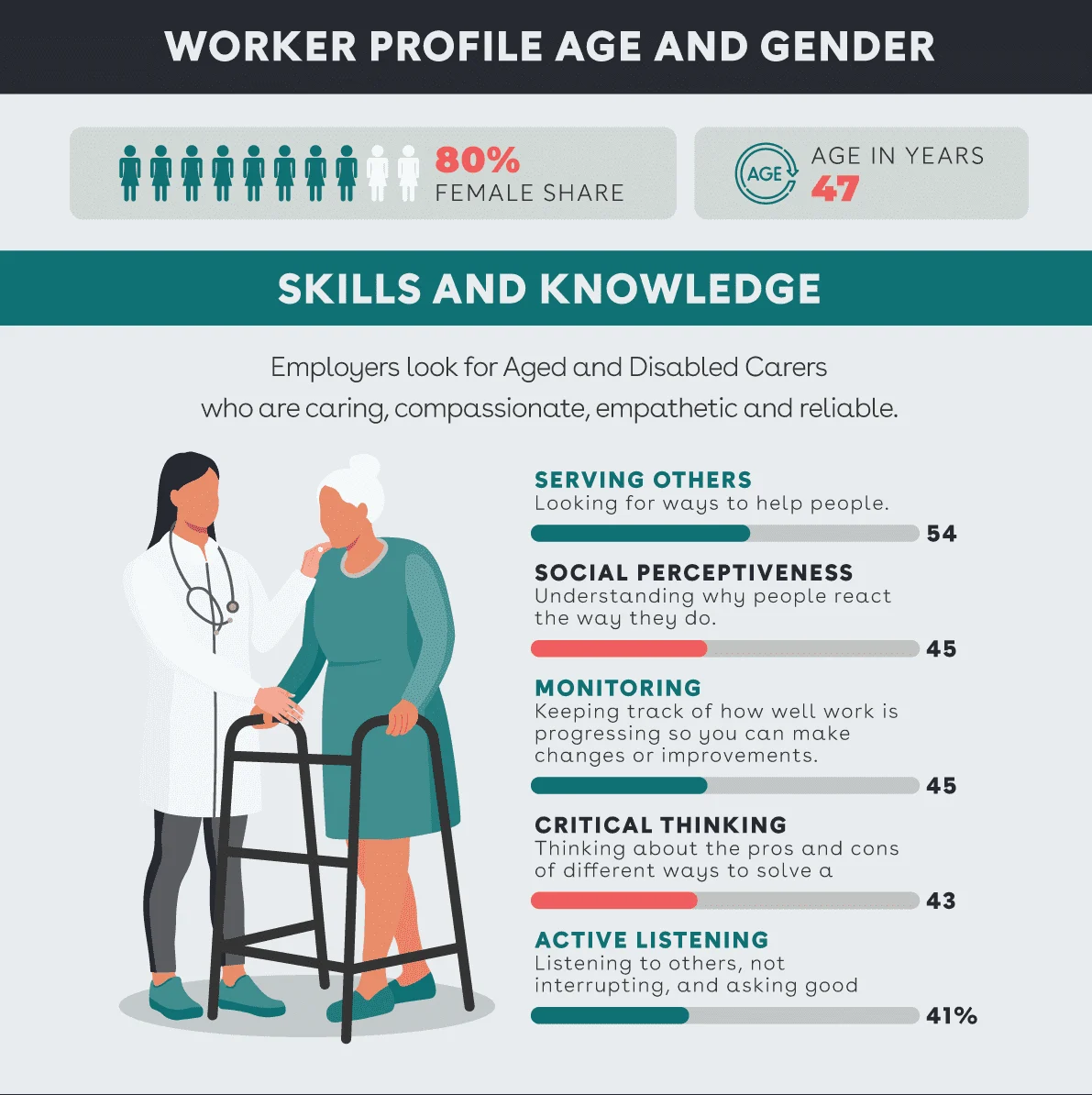- 最新资讯及文章
- 最新活动
- Find usIDP BahrainIDP BangladeshIDP CambodiaIDP CanadaIDP ChinaIDP EgyptIDP GhanaIDP Hong KongIDP IndiaIDP IndonesiaIDP IranIDP JordanIDP KenyaIDP KoreaIDP KuwaitIDP LebanonIDP MalaysiaIDP MauritiusIDP Middle EastIDP NepalIDP New ZealandIDP NigeriaIDP OmanIDP PakistanIDP PhilippinesIDP Saudi ArabiaIDP SingaporeIDP Sri LankaIDP Taiwan, ChinaIDP ThailandIDP TurkeyIDP UAEIDP VietnamIDP Corporate
- Social
- 简体中文
The Future of Aged Care in Australia
By 2050, the number of people in Australia aged 80 and over is expected to double—and so is the demand for aged care staff. The recent Royal Commission on Aged Care Quality and Safety has stressed the need for a more skilled workforce, with an emphasis on continuous professional development for all staff.
From finding the perfect course in aged care to securing accommodation in your new city, IDP expert counsellors empower each student to start their new chapter in Australia with clarity and confidence.
Want to talk to one of our education experts about finding your dream course in aged care? Contact us today.
Aged Care as a Pathway to Australian PR
There are several different roles and employment options in the aged care sector, but only two that offer immigration options.
Aged or Disabled Carer ANZSCO 423111, providing care and assistance to elderly people living in their homes in the community, or in aged care facilities
Registered Nurse (Aged Care) ANZSCO 254412, providing nursing care to the aged in the community or in facilities and retirement villages.
The registered nurse is an occupation on the skills shortage list. Once qualified, you can apply for visas:
186 Visa – Employer nomination permanent visa
189 Visa – Points tested permanent visa
190 Visa – Skilled nominated permanent visa
407 Visa – Training visa temporary visa (up to two years)
485 Visa – Temporary graduate visa (up to 18 months in order to find a permanent job)
482 Visa – Short term stream temporary visa (up to two years)
187 Visa – Temporary residence transition stream permanent visa
494 Visa – Skilled employer sponsored regional provisional visa (up to five years)
491 Visa – Skilled work regional provisional visa (up to five years)
While aged care workers are not on the skills shortage list, employers can hire immigrants on a labour agreement program. This is when qualified and experienced Australians cannot be filled in these roles.
This happens via a state or territory sponsorship using a skills assessment, usually via the 491 visa (skilled work regional provisional visa). The other option is finding an employer to sponsor you under a designated area migration agreement called the Designated Area Migration Agreement (DAMA), or a labour agreement, under the 482 or 494 visas. While these are temporary visas, they can lead to PR. The DAMA applies in the Northern Territory, South Australia (regional), and the Orana region of NSW.
Want to Move to Australia on an Aged Care Qualification Gained Overseas?
The skills assessment authority for nurses in Australia is this ANMAC, Australian Nursing and Midwifery Accreditation Council. You’ll need to get a role through the visas listed above, and then have your qualifications and experience assessed as equivalent to an Australian qualification. Once approved, this information can be sent along with your visa application.
Benefits of Working in Aged Care in Australia
Job security: As these roles are highly in demand, there are plenty of jobs to choose from and mobility within Australia
PR: Even if the visa you apply for isn’t a PR visa, all can be pathways to permanent visa options
Salary: Registered nurses in the aged care sector make between $75,000 and $100,000 a year, there are options to specialise further if desired. Carers make between $50,000 and $60,000

Aged Care Programs Available in Australia
Entry Level Aged Care Programs
Certificate III in Individual Support (CHC33015) is the very basic entry qualification into aged care. It includes practical placements so when you graduate, you can hit the ground running. It is typically around six months long and is widely available in institutions across Australia.
From here, you can study in increasingly specialised areas, particularly in palliative care and dementia. It’s estimated that 70% of people in aged care have dementia, and not enough carers, GP’s, and nurses fully understand the symptoms and needs of these people.
Courses that further education include:
Certificate IV in Ageing Support (CHC43015)
Certificate IV in Leisure and Health (CHC43415)
These courses need an IELTS score of around 5.5 across all bands, but this may differ across individual providers. Costs vary, but typically you can expect to pay AU$5000 for each six month course.
Registered Nurse Qualifications
To become a registered nurse, the pathway is longer but the benefits are greater.
Bachelor of Nursing: This is generally a three year degree, and requires an IELTS score of around 7 (although this differs across providers). Fees vary, but expect to pay approximately AU$15,000 per semester.
Master of Nursing (Aged Care): This degree can take around two years to complete. It allows you to specialise in the kind of care that older people need, with units of dementia and palliative care.
Want a Rewarding Career Working in Aged Care in Australia?
Find out how IDP can help you search your dream course in Australia. Our experienced counsellors can help you choose your course, provider, and even set you on the right track for PR. Call us today to find out more.




